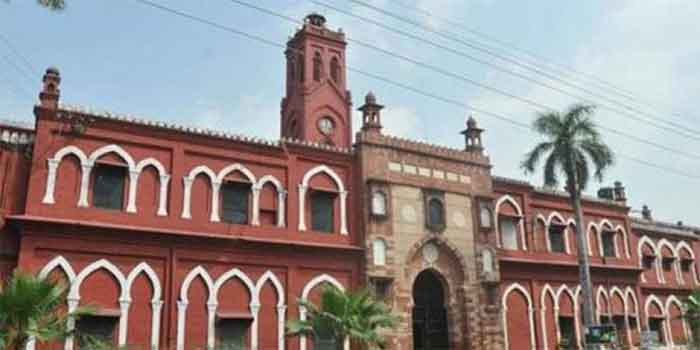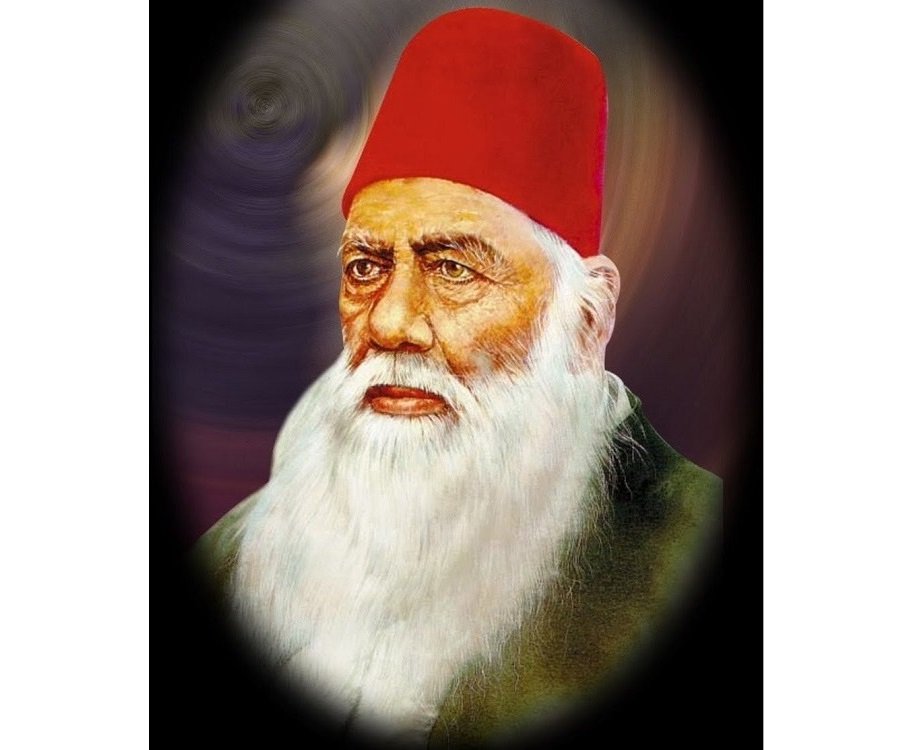
The recent discussions on AMU’s minority status and misinformation among the people has virtually forced me to reiterate some facts to the various stakeholders. It is ironic that many alumni and the existing students of the AMU are unaware of the facts and reality. Normally three basic questions are raised by the people namely: (i) AMU was not established by Muslims of India but by an act of legislature, (ii) there is nothing like minority & majority and, (iii) How and why a fully funded institution can be categorized as minority institution.
The existing round of debate was started when AMU implemented reservation of Muslims in admission in 2004 and the same was quashed by the Allahabad High Court in 2005. The University always maintained admissions based on competition open to all sections of society; it was only in 2003, the Supreme Court in Saurabh Chaudhri vs. Union of India case decided that 50 % seats of MD/MS should be surrendered to the AIIMS for All India test after validly reserved seats for SC/ST etc. This actually was the point which prompted University to proceed towards reservation as no seats were remaining for open competition. The AMU was earlier allocating their 25 % seats to All India quota, decided to reserve 50 % seats for Muslims, 50 % of the remaining (25 % of the total) for All India quota and remaining 25% for internal students.
The subsequent volte-face by the Government on the minority institution status in Supreme Court and later developments triggered serious debate in the media. I as a member of the Executive Council was witness and a party to this entire episode when reservation was approved. It is unfortunate that now we have been entangled into this legal web, but more unfortunate is our ignorance about its details and media/social media trials are making it further complex.
The Muslim character of this great seat of learning was itself expressed by the Viceroy Lord Lytton, on January 8, 1877 while laying the foundation stone of the MAO College, which Sir Sayed conceived with Islamic spirit and secular character. In furtherance of the objective of establishing a Muslim University, Mohammedan University Foundation Committee was formed on January 10, 1911 under the presidentship of Sir Agha Khan. A Memorandum based on Muslim denomination was submitted to the Government of India in 1912. On Government’s demand a huge sum of Rs 30 lakhs as reserve fund (endowment) was raised (equivalent to Rs 2600 Crores of now). The memorandum reads:
“And whereas from the beginning the object of the founder and the Muslim community was to raise such College to the status of a University, And whereas during the last thirty five years of its existence the said College has very largely extended and expanded, And whereas a memorial has been presented to the Trustees of the said College and other representative of the Muslim community praying for the erection of a Muslim University at Aligarh, and inviting attention to the advantages which a University of their own would confer on their community, to the inadequate representation which their community has in the existing Universities, to the enthusiasm which their own University would create amongst the Musalmans for education at every stage, to the advantages of teaching over a purely examining University, and to the need for religious teaching and the protection of oriental learning,
And whereas it appears to the Government that, considering the peculiar circumstances of the Muslim community and its special educational requirements such a prayer is just and reasonable…………”
The Aligarh Muslim University bill was passed by the Imperial Legislative Council and Gazette on December 1, 1920. The first amendment in AMU Act in the post independent India was enacted in 1951 by allowing non-Muslims as the members of the Court, theology was declared as non-compulsory subject and composition of the Court, the Academic and the Executive Council was changed drastically. Another amendment in the Act in 1965 was a severe blow to the original character of the University. The Democratic supreme governing status of the Court reduced to a nominated advisory body. Most of these amendments were subversive to the spirit of establishment of MAO College and AMU. It was criticized by all the sections of Muslim community and was challenged by Aziz Basha in the Supreme Court on the grounds of minority status of the institution. He lost the case on a very narrow and debatable technical ground. It was held that as the University was established by the Central Legislature, the Muslim community cannot claim to administer it; hence the said amendment is constitutional.
The Allahabad High Court assertion in 2005 on the basis of Supreme Court‟s ruling in the Azeez Basha case in 1967, despite the critique of the ruling by H.M. Seervai and a highly significant judgment on November 26, 1981 by Justices S. Murtaza Fazal Ali and B.R. Mishra of the Supreme Court questioning the Aziz Basha ruling and urging its “reconsideration” by “a larger Bench” to be constituted by the Chief Justice of India, which never constituted.
In 1972 another amendment was passed but it could not fulfill the aspirations of Muslim community, as a result the movement for the restoration of minority character of the University remained continued with renewed vigour and zeal. Finally, some major changes in sections 2(l) and 5(2)(c) were incorporated with the promulgation of another amendment in the AMU Act in 1981.
Under Section 2(l): Earlier the University was defined as “University” means the Aligarh Muslim University, which was amended as “University” means the educational institution of their choice established by the Muslims of India, which originated as Mohammedan Anglo-Oriental College, Aligarh and which was subsequently incorporated as Aligarh Muslim University. The Section 5(2)(c) provides “The University shall have the powers, namely- to promote especially the educational and cultural advancement of the Muslims of India”.
However, the Allahabad High Court not only quashed the reservation policy but strike down sections 2(l) and 5(2)(c) by the divisional bench of High Court, which is the basis of the pending appeal in the Supreme Court.
Historically, the vast majority of the Muslim community and the well-wishers of the University rightly consider it a minority institution. The 1981 AMU amendment Act has further strengthened our belief, as it has duly recognized its origin as MAO College. Our views were also based on the fact that the principle of reservation and preference (Article 15 and 16) is embedded in our Constitution and it does not flout the right to equality (Article 14). Further, Article 29 does not control the scope of Article 30(1), which provides the minorities to establish and administer their educational institution. The Supreme Court in one of its judgment in 1993 ruled that “there is no absolute when claims to justice on complaints of inequality are considered. The goal of Articles 14 and 16 are limited to equality among comparables.” By any standards, Muslims are the weakest section of our society and are obviously incomparable.
The question on the validity of reservation on account of a government aided institution has also been settled by the Supreme Court in TMA Pai case……” A minority institution does not cease to be so, the moment the grant-in-aid is received by the institution. The aided minority educational institution, therefore, would be entitled to have the right of admission of students belonging to minority group.”
The Allahabad High Court’s judgment in 2005 and now pronouncement of BJP led Central government that AMU is not a minority institution clearly point out the incompetence of the Parliament to incorporate the 1981 amendment has stirred majority of common people, as to how the Parliament, which is the supreme authority is unable to prevail. The relevant articles of fundamental rights of our constitution, Aziz Basha case and procedures of validation need to be mentioned here to clear this cloud of confusion.
As described earlier the concluding para of the above said Aziz Basha judgment explicitly mentions ……”These provisions in our opinion clearly show that the administration was also not vested in the Muslim minority; on the other hand it was vested in the statutory bodies created by the 1920 Act, and only in one of them, namely, the Court, there was a bar to the appointment of anyone else except a Muslim, though even there some of the electors for some of the members included non-Muslims. We are, therefore, of opinion that the Aligarh University was neither established nor administered by the Muslim minority and therefore there is no question of any amendment to the 1920 Act being unconstitutional under article 30 (1) for that article does not apply at all to the Aligarh University.”
H.M. Seervai in his detailed critique concluded with respect to Aziz Basha ruling “the Muslims brought the University into existence in the only manner in which a University could be brought into existence; namely by invoking central legislation. The Muslim community provided funds, building, colleges and endowment for the University and without them, the University as a body corporate would be an unreal abstraction. It is submitted that the decision is clearly wrong and productive of great public mischief and should be overruled.”
Therefore, in all practical sense the Supreme Court’s decision is acceptable that it is parliament who established AMU not the Muslims but then please accept that the Imperial parliament established Aligarh Muslim University for the Muslims. The provision of only Muslim members in the Court which was executive body and inclusion of theology as a compulsory subject in 1920 Act was a clear assertion of the then legislature. It was only post independent India in 1951 when these provisions were withdrawn.
The Supreme Court has time and again, in numerous judgments ruled in favour of minorities’ institution Kerala Education Bill case, Ahmedabad St. Xaviers College v. State of Gujarat, State of Kerala v. Mother Provincial, TMA Pai case, St Xavier’s College case constitute a long list.
Supreme Court in Guru Nanak University case (D.A.V. College, Jullundur v. State of Punjab, AIR 1971 SC 1737). In that case, the Supreme Court rejected the contention of the state of Punjab that a religious or linguistic minority should be a minority in relation to the entire population of India. The Court has ruled that a minority has to be determined, in relation to the particular legislation which is sought to be impugned. If it is a state law, the minorities have to be determined in relation to the state population. The Hindus in Punjab constitute a religious minority. Therefore, Arya Samajis in Punjab also constitute a religious minority. The Supreme Court didn’t ruled that minorities has no right to establish a university rather the contention was that Arya Samaj community is a minority community. Owing same reason, the educational institutions in Kerala run by minority communities (based on whole country’s population); do not enjoy the minority status.
Managing Board, M.T.M v. State of Bihar, the Supreme Court has clarified that “There is, no doubt, no such thing as Fundamental Right to recognition by the state but to deny recognition to the educational institutions except upon terms tantamount to the surrender of their constitutional right of administration of the educational institutions of their choice is in truth and in effect to deprive them of their rights under article 30(1). We repeat that the legislative power is subject to the Fundamental Rights and the legislature cannot indirectly take away or abridge the Fundamental Rights which it could not do directly.”
Both Aziz Basha and Divisional bench judgement of Allahabad HC quashing the amendment to AMU Act in 1981 are bad laws in the eyes of many jurists. The Allahabad HC judgement which has been stayed by SC stands it as a minority institution till either the stay is vacated or the SC constitution bench gives its judgement. The SC has only restrained AMU from reservations rest of the powers of AMU stands as it is. This is the reason that constitutional reservations of SC/ST OBC are not applicable in AMU a minority institution.
By any stretch of imagination, it is a utopian concept even in a secular state to provide equal status to minorities where one single religion consists of 80% of population. Muslims are the most deprived amongst all minorities, their Literacy rate is lowest, and poverty rate is highest leading to deprivation of jobs. In urban areas, 60% of the Muslims have never gone to schools as against the national average of 20%. Only 5%of Muslim women have completed high school education and the income of the average Muslim is 11 % less than the national average. For all practical purposes all the Universities serve the purpose of furtherance of educational need of majority community though they are open to all.
An essential facet of Article 30(1) is to provide safeguard by incorporating special privileges to religious and lingual minorities. The Supreme Court in the St Xavier’s College case has rightly pointed out that, “The whole object of conferring the right on the minorities under Article 30 is to ensure that there will be equality between the majority and the minority. If the minorities do not have such special protection, they will be denied equality.
But the real question is; does this safeguard is sufficient until Muslims will not be educated through a special derive as government is doing for SC/ST/ Now if minorities can’t establish Universities and supported by the welfare state than the entire claims of safeguard of educational and cultural rights of minorities are farcical.
Anwar Khursheed, Professor, King Saud University, Riyadh, KSA
SIGN UP FOR COUNTERCURRENTS DAILY NEWSLETTER










































